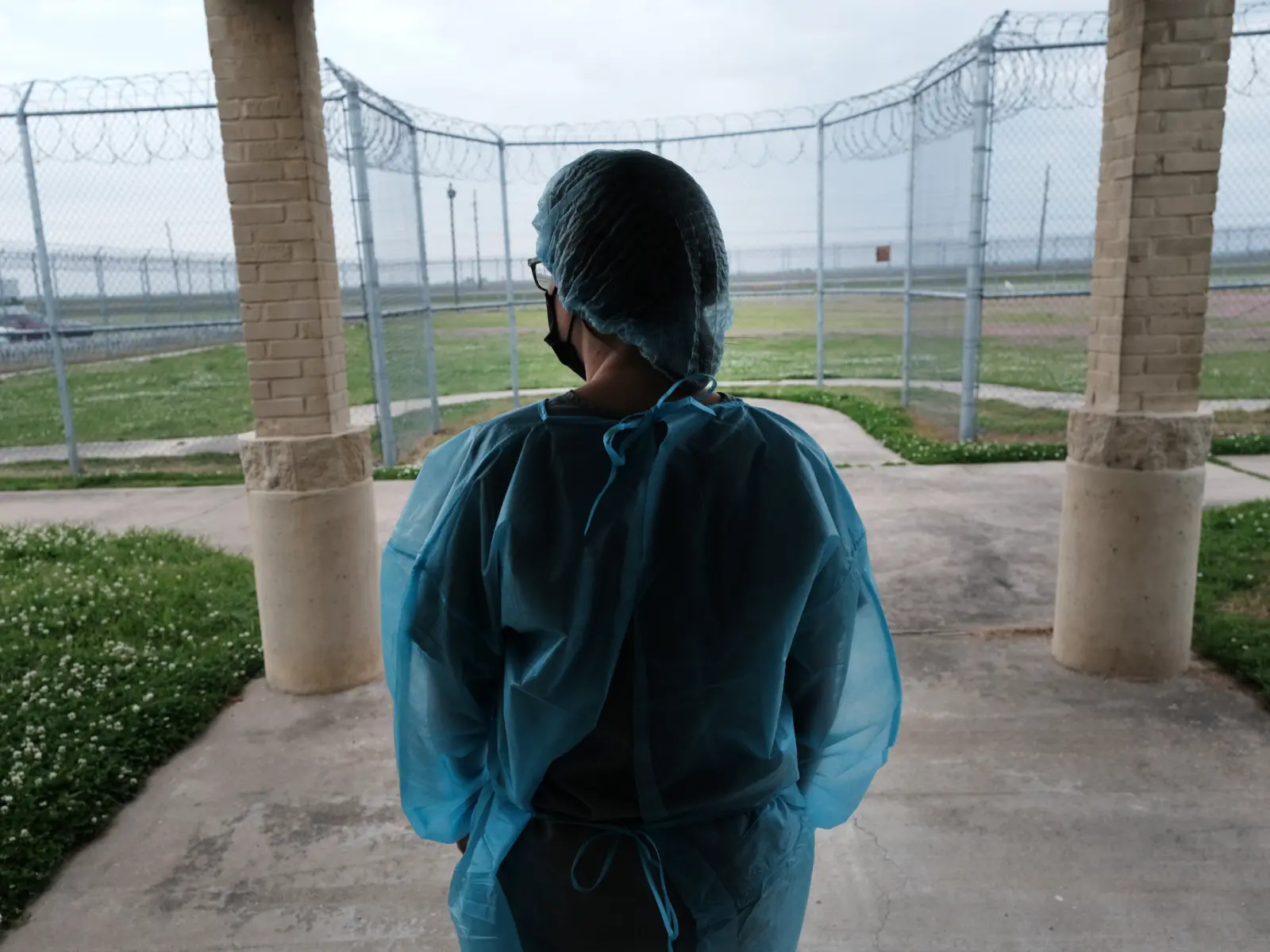In July, Kevin Ring joined Arnold Ventures (AV) as its new vice president of criminal justice advocacy. A renowned national leader in criminal justice reform, Kevin had previously been president of Families Against Mandatory Minimums (FAMM). In his role at AV, Kevin directs the organization’s advocacy team as it builds and supports bipartisan political coalitions to develop and drive evidence-based criminal justice reform policies and legislation.
We sat down with Kevin to discuss his views on criminal justice reform and goals for the future.
Your backstory of being a formerly incarcerated person is well-known, but was there any one particular moment where you realized that you wanted to focus your career on criminal justice reform?

Kevin Ring
There were many points during my ordeal – the plea negotiation, jury selection, my time in prison – when I thought, “This process is so screwed up. If people only knew.” But what made me realize I had to do this work was being hired at FAMM after I was released and meeting so many families whose experiences were much worse than mine. Seeing the enormous human toll. Being proximate to those being crushed by the system can overwhelm you because it is so sad and infuriating and wasteful. But it can also motivate you – because you want to do everything you can to change things.
What is your ultimate goal or vision for the justice system in the United States? What would it look like if you were successful in everything you wanted to achieve?

Kevin Ring
I’d like us to send fewer people to prison and, when we do, send them for shorter terms. I’d like people to be sentenced based on their culpability, not on whether they exercised their constitutional right to trial. When people do go to prison, I’d like for them to be treated humanely and with dignity and given every opportunity to work on whatever issues landed them behind bars. The reason I support reform is because I think we can do all those things while improving public safety.
Is there one reform effort that you were part of in the past that you are particularly proud of?

Kevin Ring
Too many people think you must get a bill passed to improve the system, but reform can happen in many ways. For example, a recent effort I am proud of is helping to convince the U.S. Justice Department to push for early release of women who were sexually assaulted by federal prison officials. When people are sentenced to prison, they are not sentenced to rape and assault and torture. The DOJ in the past has responded to such abuse by prosecuting officers, which is appropriate but inadequate. What needs to happen is that survivors should be released so that they can heal. I was part of the effort to convince the DOJ to use its authority to seek early for sexual abuse survivors, and I am very gratified that the current department is starting to do it.
Looking forward, what are your priorities for 2024? What do you think are the areas of criminal justice reform that are most likely to see progress?

Kevin Ring
My top priority is to make sure AV supports smart, strategic advocacy partners to make as much progress as quickly as possible. Because of the recent rise in violent crime, we must continue to push back on the narrative that recent reforms are to blame. I think reform is the answer, not the problem. Our current justice system is not producing the safety we need nor the justice we deserve. In 2024, I am excited to work with our grantees to pass bipartisan solutions in every area from public defense to sentencing to reentry.
What do you see is the optimal role of philanthropy in advancing justice reform policies?

Kevin Ring
I’ve been a grantee and now I work for a grant maker, and I can say that I really don’t think there is an “optimal” role. Philanthropists in justice reform or any other area should be as involved as they want in making sure their funding achieves the maximum impact. Some might not have the time or interest or expertise to be heavily involved, but others will. The only thing I would encourage philanthropists to do is to think about the long game. Justice reform is very difficult work and requires sustained support.
Do you have any hobbies or interests outside of criminal justice reform policy?

Kevin Ring
I’ve played basketball my whole life. I still play and love it, although it takes longer to recover. I also read a lot.
Do you have a book you are currently reading or and all-time favorite book you would recommend to our readers?

Kevin Ring
I just finished The Bee Sting, a novel by Paul Murray. I liked it. In terms of all-time favorites, about 15 years ago, I read two books that changed the way I saw the world: The Blank Slate by Steven Pinker and Non-Zero by Robert Wright. I recommend those to everyone. On the fiction side, I recommend everything by George Saunders.




















